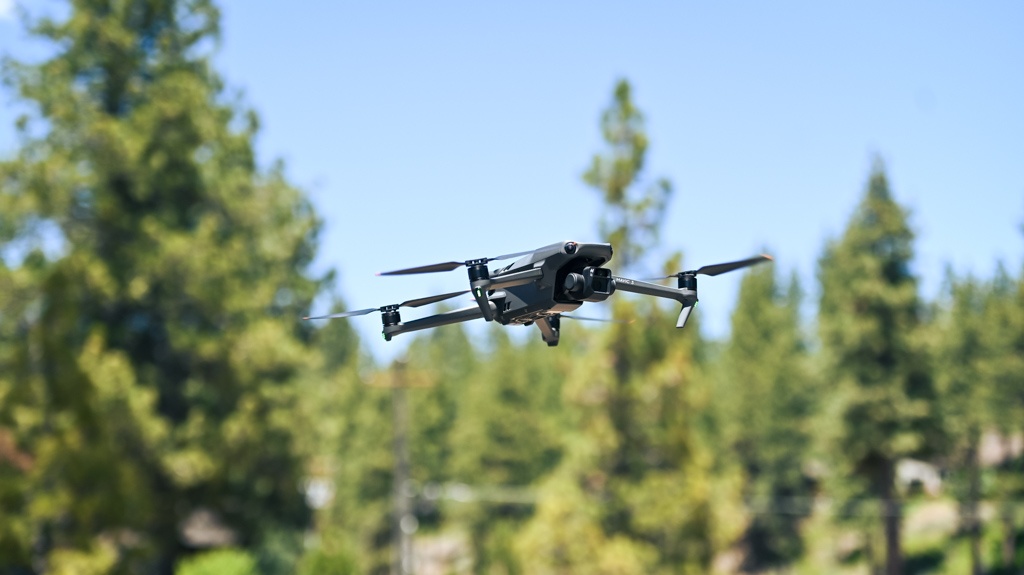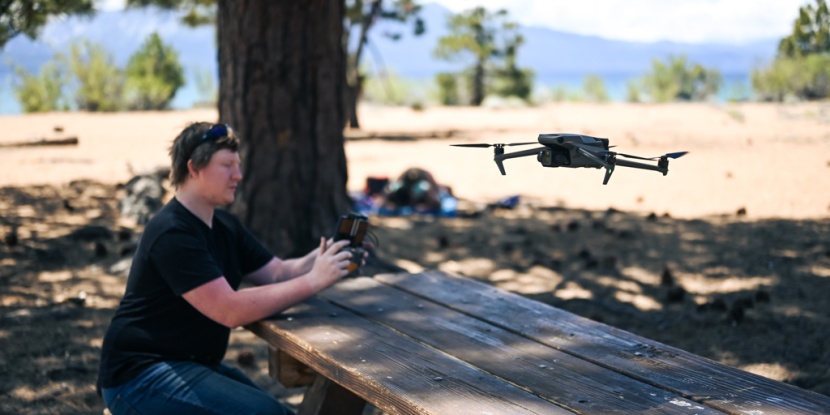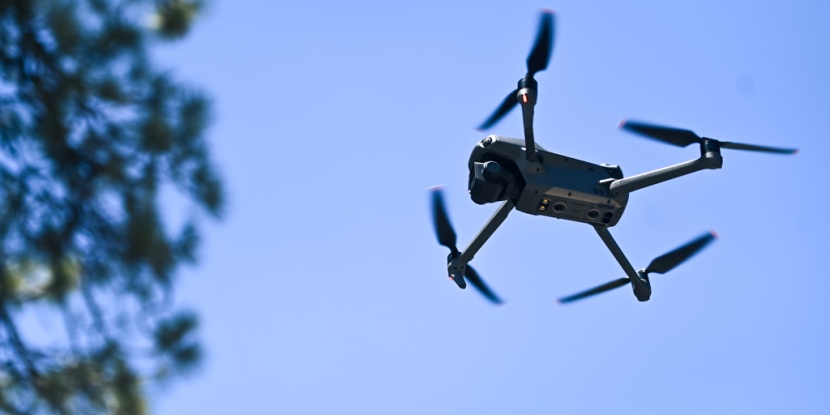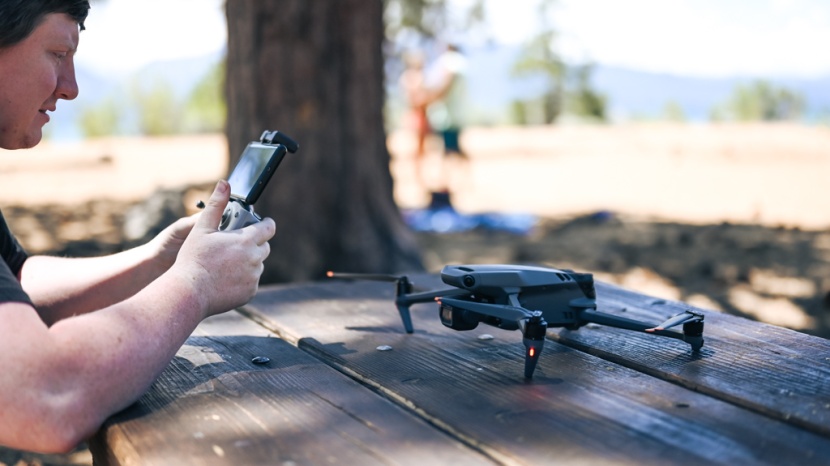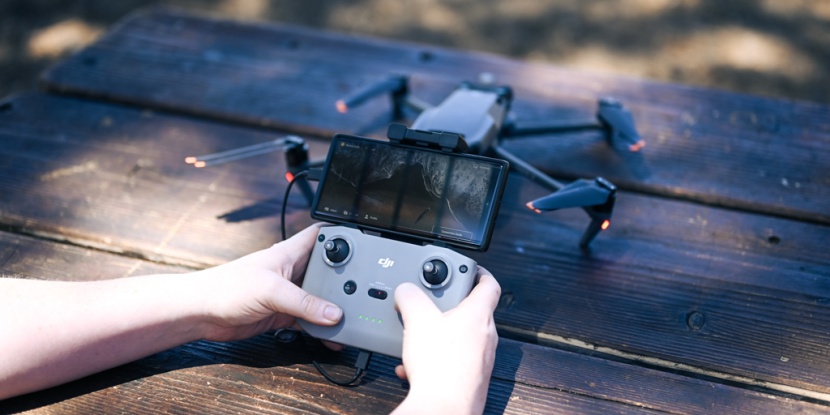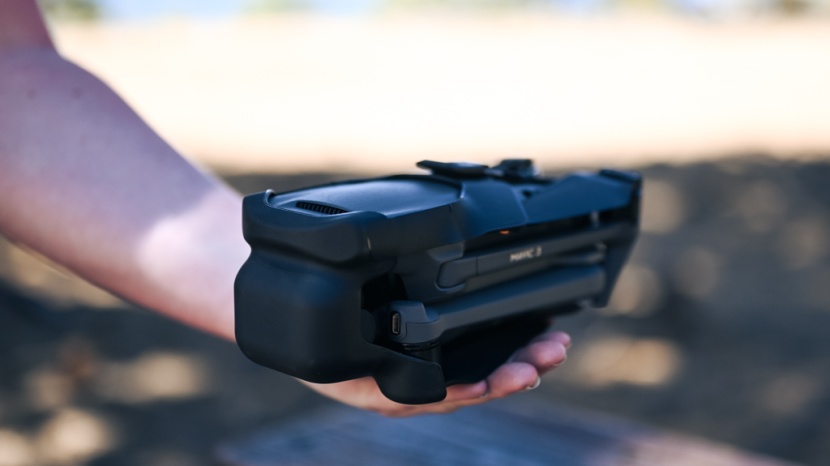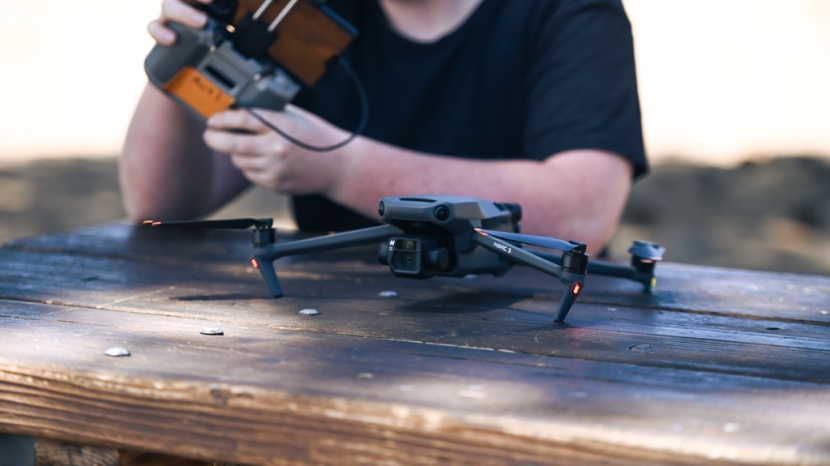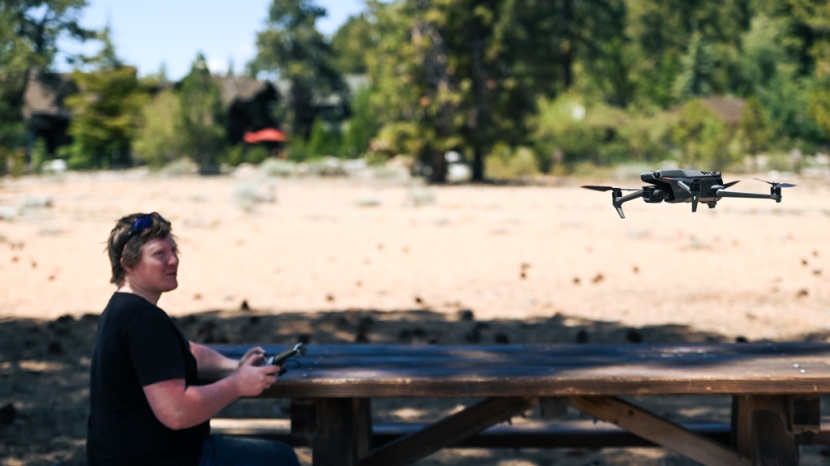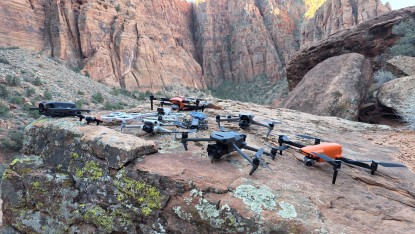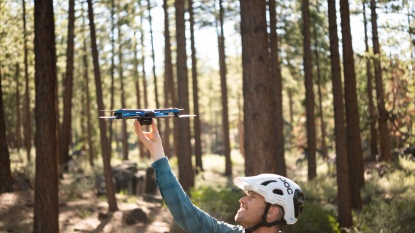
Our Verdict
Our Analysis and Test Results
The Mavic 3 is a pro-consumer quality drone that left testers tipping their hats to the attention to detail, well-thought-out features, ease of use, responsive controls, ultra high-quality video, and sleek design. We can't recommend a better device if you are in the market for a top-shelf drone.
Video Quality
Video quality is the most important and thus most heavily weighted metric in our drone assessment. This metric covers a lot of ground — resolution, detailed shots, low light shots, and stability. Without good video, one will likely not be very pleased with their investment. As such, we are happy to report that the DJI Mavic 3 is a class leader in video quality.
Drone cameras have come a long way in the last few years. Where 1080p used to be an impressive level of resolution, consumer cameras now boast professional-grade resolution. Case in point, the Mavic 3 has a maximum video resolution of 5.1K — that's over seven times as many pixels as a 1080p frame.
This resolution means that detailed shots like those with lots of trees are needle-sharp. As such, the Mavic 3 produces some of the cleanest video we have observed in our tests. However, this camera's performance goes far beyond the sharpness of its images. When the camera is pointed at the sun, it demonstrates a pleasing highlight roll-off as the shutter can be “stopped down” for proper exposure in bright light.
Conversely, our low-light test revealed that the higher ISO settings available on the Mavic 3 are very useful — though they produce noticeable degradation in video crispness. Nonetheless, testers were pleased to see that the underexposed areas in the frame did not exhibit codec breakdown or blocking. It should be noted that this drone has an aperture adjustment — a rarity on consumer-grade drone cameras. The aperture ranges from f2.8 to f11, allowing for greater camera exposure control.
Gimbal stabilization also makes a sizable contribution to video quality for the Mavic 3. The gimbal provides a solid platform, rendering nearly shake-free film during normal flight operations. In no small part, this result is the product of the broad range of movement that the gimble accommodates and the high-end flight controls.
Flight Performance
Like video quality, this metric measures several aspects of flight behavior, including takeoff and landing, intelligent flight programs such as orbiting, following, waypoint navigation, and return home function. Additionally, we look at the hovering, battery life, and transmission for this metric. The Mavic 3 performed exceptionally well in each of these tests.
The Mavic 3 has highly responsive controls, which, for the most part, is a great quality to have in flight. When it comes to takeoffs and landings, the user must participate in the process as it is not entirely automated as with some drones. We encountered no issues with takeoff, but the somewhat touchy controls made landing a little precarious at first. We found that a soft touch with the stick is a needed skill for accurate and smooth landing — the same was true for negotiating tight spaces.
While the Mavic 3 did not top the charts in the intelligent flight portion of our flight performance analysis, it still did better than most. Part of the reason it didn't do as well as some of the competition is that it is an advanced performance device, and the design emphasizes pilot control. That said, the Mavic is no slouch in this regard. Common intelligent flight features are orbit or point of interest, follow mode, and waypoint navigation (cable cam). The Mavic 3 does well in all of these flight modes except for waypoint navigation, as this feature is absent altogether.
The Mavic 3 also has a return home function for emergencies that is quite effective. However, it is important to remember to manually set the home waypoint at the time of takeoff. Additionally, the Mavic 3 has a QuickShot mode that allows the user to pre-program flight patterns for specific types of shots. This feature can be used in combination with the MasterShots mode that automatically flies and cycles through all the QuickShots on a user-defined subject. This is a quick and effective way to get a handful of smoothly executed cinematic shots in a short time. All told, we found the Mavic 3 to be a rock-solid camera platform that is highly responsive.
As a final consideration, we look at battery life. Compared to its peers, the Mavic 3 has prolonged battery life. This drone boasts a max flight time of 46 minutes or a distance of 18.6 miles in ideal conditions. Moreover, the device will transmit video over 3000 feet before the signal starts to deteriorate. The video being transmitted is sharp, allowing one to be confident that what they are seeing is the shot they are actually capturing.
Portability
As the name implies, the portability metric addresses each drone's weight, size, and storage. While portability isn't as critical as video characteristics, the ability to easily transport your drone is important as they are rarely used exclusively at home.
The 1 pound 15.5-ounce Mavic 3 received an average score in this assessment. Despite its relatively compact 8.75-inch diagonal dimension (16 inches unfolded), this drone was hindered by its lack of a case included with purchase. As it is, the device comes with a cover that protects the gimbal and keeps the blades contained in their folded position. All told, this unit would easily fit into a backpack or a large purse
Ease of Use
Ease of use is a critical component in the assessment of drones and a key detail to consider if you are a new drone pilot. Regarding ease of set-up and operations, the Mavic 3 is a smooth operator. Set-up is as simple as removing the unit from the box, removing the protective films, and installing the props. From there, the battery must be charged, the app installed on the user's phone, and then you're ready to go.
The Mavic 3 interface is a video game-style controller with a smartphone for the screen. The unit works well despite being a little cramped for larger hands, but it feels balanced. As for the interface layout (GUI), we found it to be clear and easy to navigate using touch gestures, while the on-screen video quality is amazing (though this will be phone-dependent.)
Piloting this drone is easy, though its sensitive controls take some getting used to. However, getting used to the sensitivity is worth the effort as it speaks to the device's responsiveness. On the flip side, a very responsive drone makes for easy learning because little compensation is needed — unlike models with sluggish controls. Finally, the Mavic 3 can transmit a smooth, clear image signal from over 3,000 feet with a maximum transmitting distance of 9.3 miles horizontal and 3.72 vertically.
Value
Value is an assessment of a given product's cost in relation to its performance. The Mavic 3 performs at a near-professional level, but it comes with a near-professional price tag. Other models in our review perform almost as well as the Mavic 3 and cost significantly less. That said, some models cost more and perform poorly by comparison. While we do not find the Mavic 3 a great value, it is worth every penny if you want a high-performance drone.
Conclusion
This review of the DJI Mavic 3 drone covers all the details that you'll want to consider before making a purchase. Throughout our testing process, this drone showed itself to be a pro-quality device with a host of useful features that will aid users in capturing pro-quality drone footage. If you want a top-tier device with a manageable price tag, the Mavic 3 should be at the top of your list.


